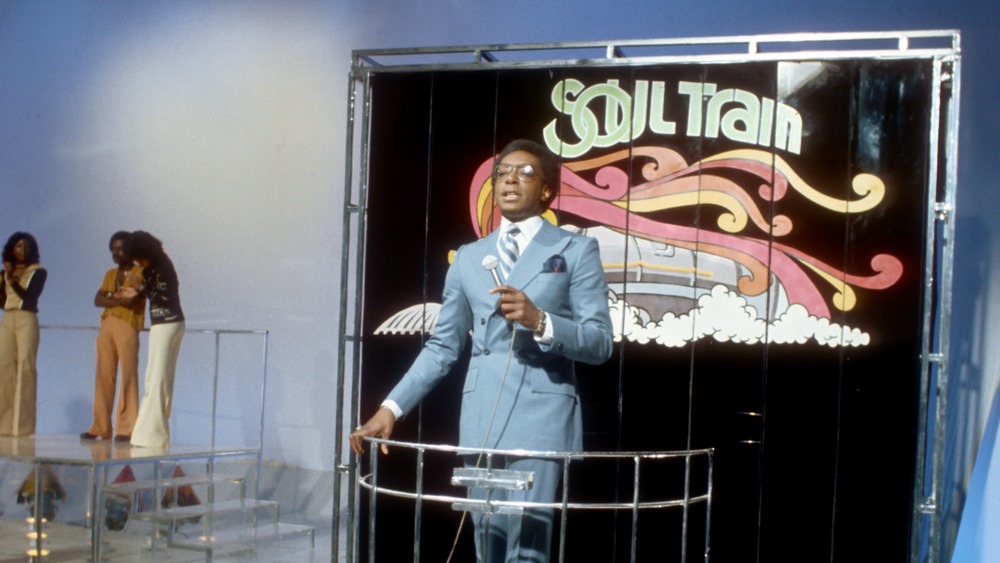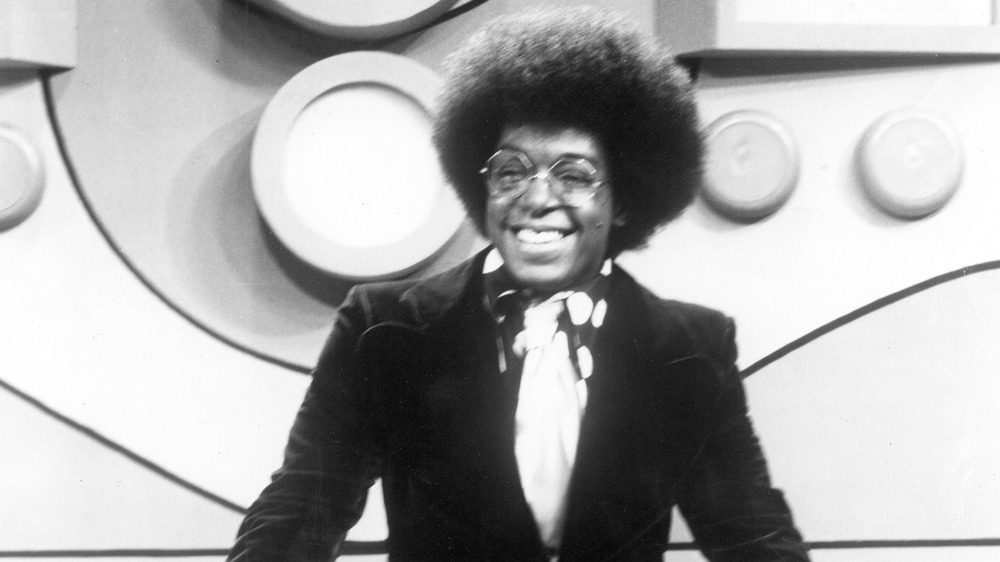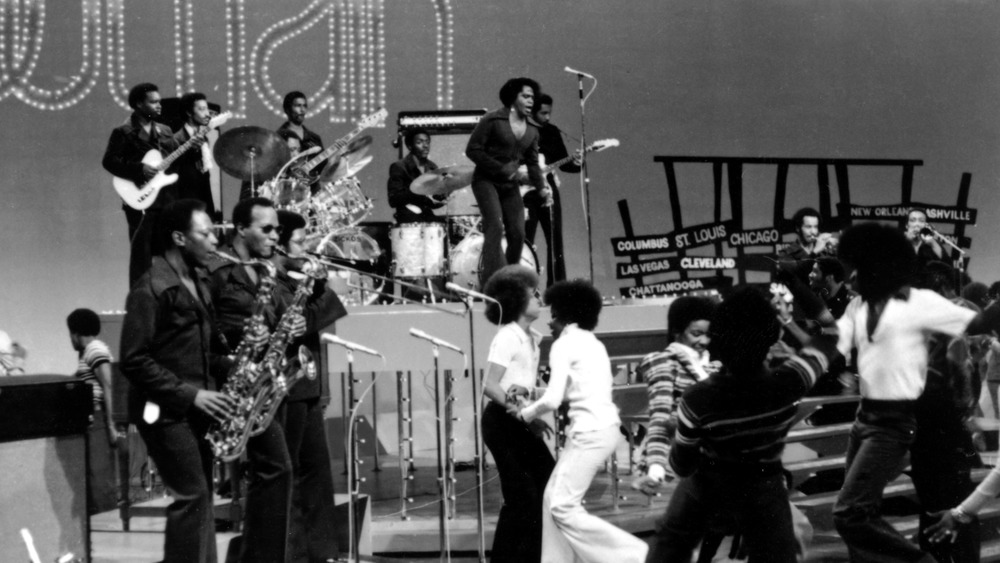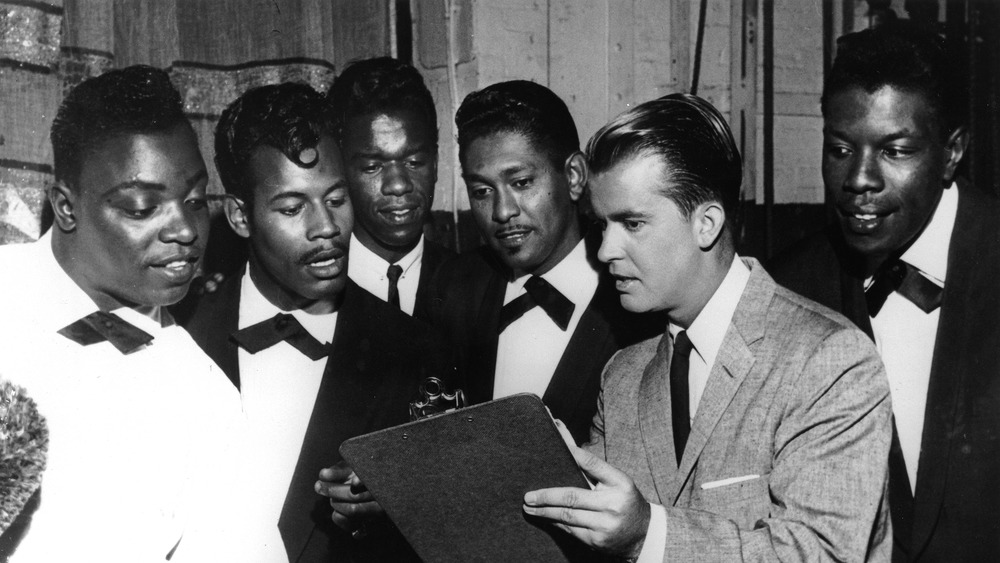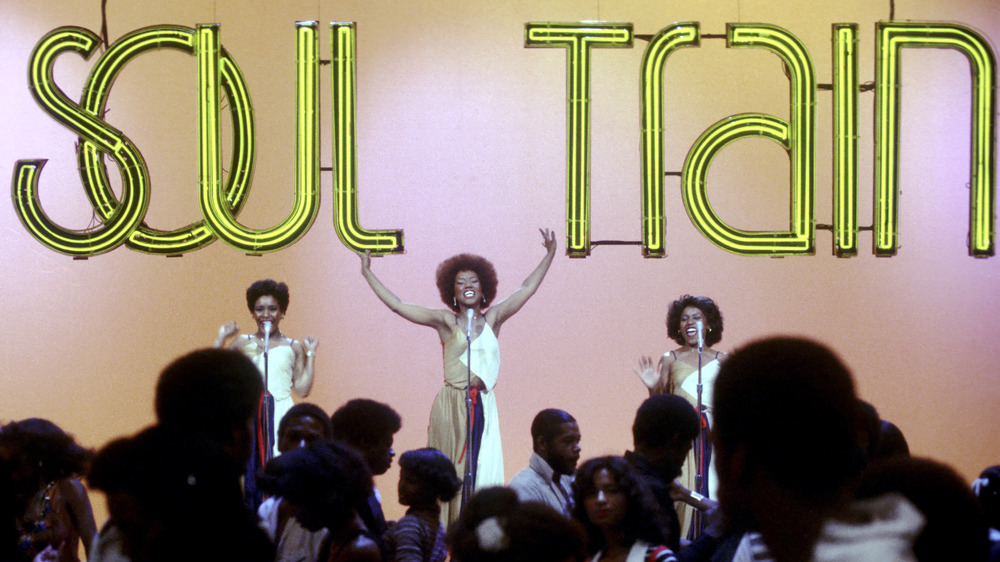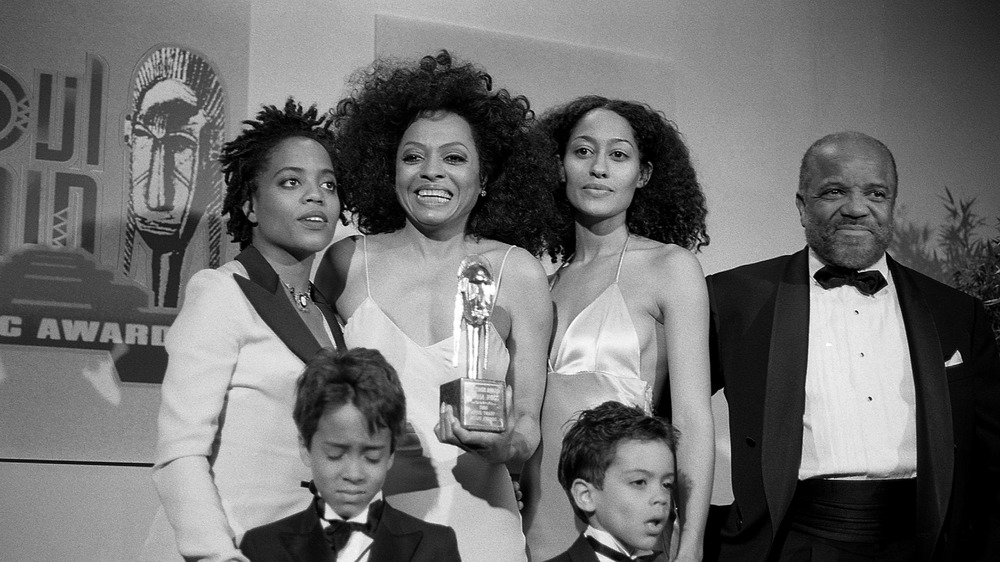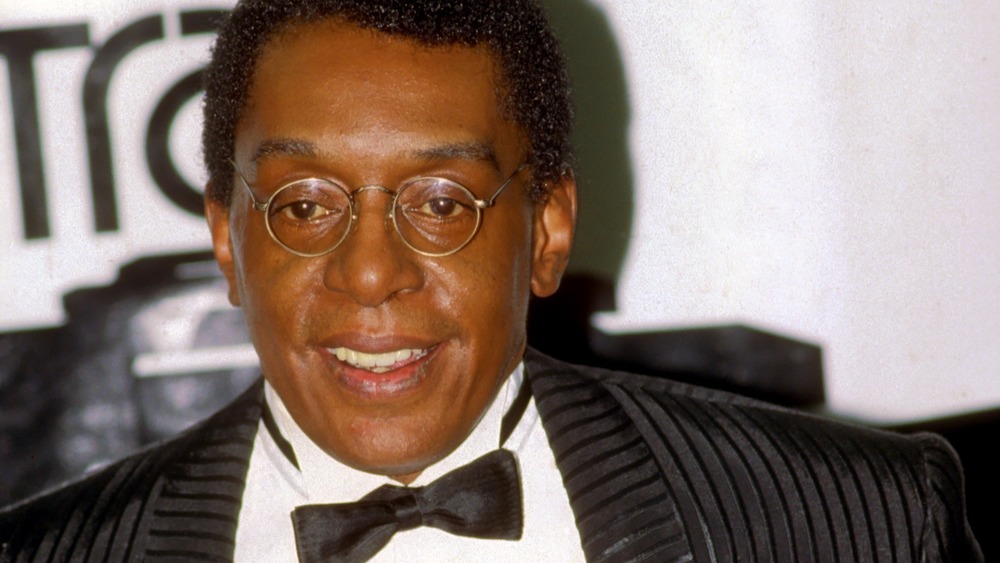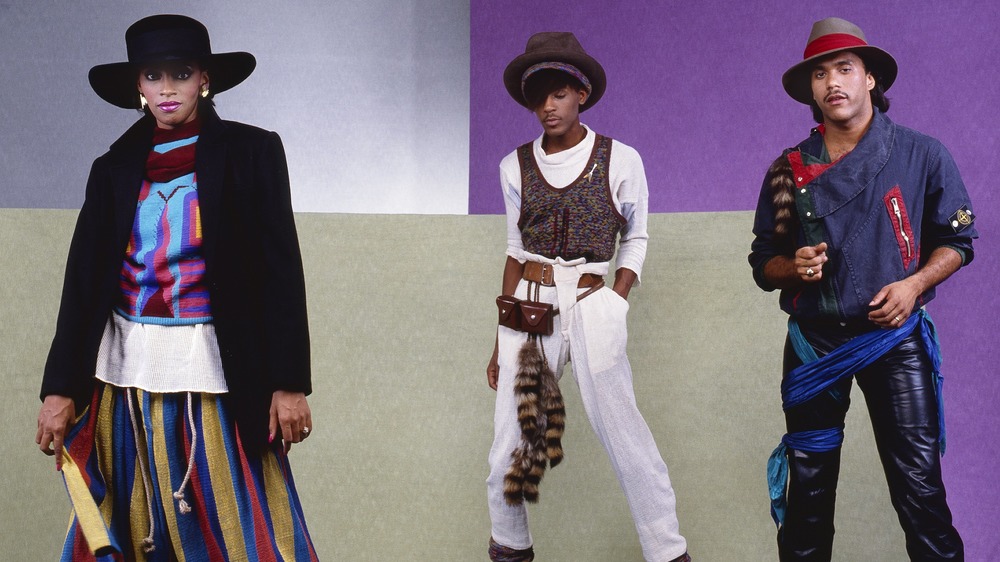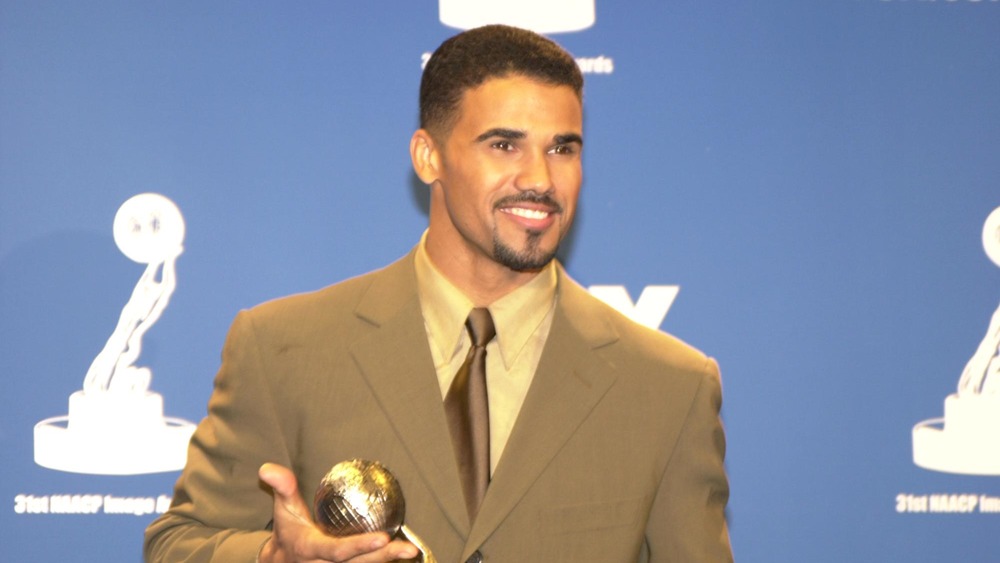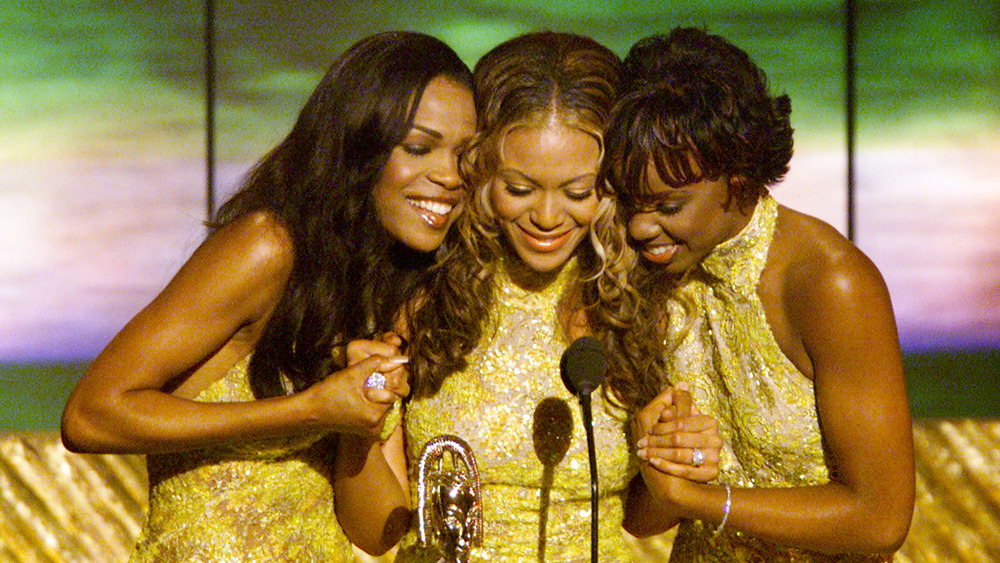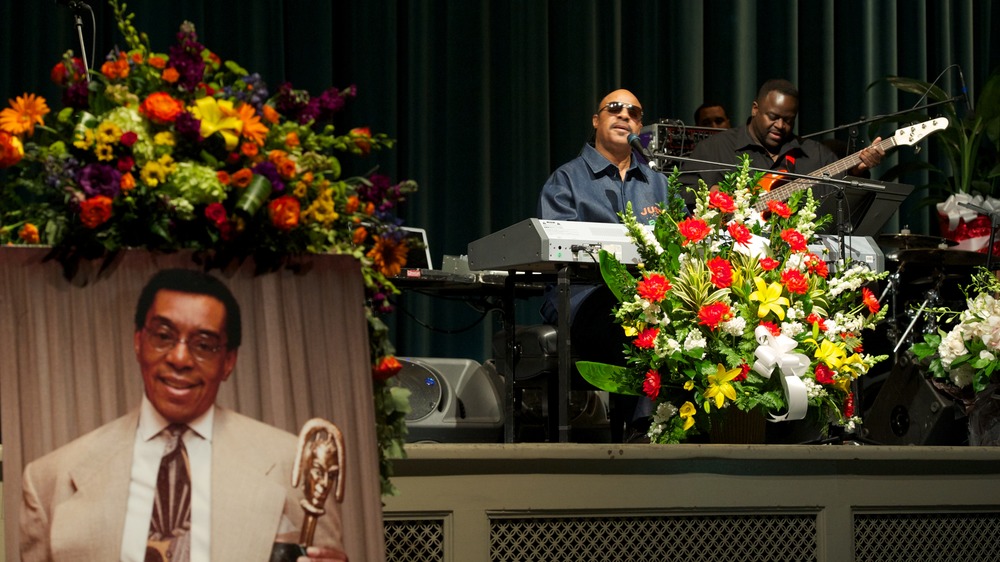The Untold Truth Of Soul Train
For almost 40 years, Soul Train took viewers on a funky, melodic, and exuberant ride every Saturday morning. The show, when it first broke out onto a national stage, signified the turn of one era of television to another. The end of the 1960s saw the conclusions of television shows such as The Andy Griffith Show, Petticoat Junction, and other conservative and white sitcoms that did not express the tectonic cultural shift of the decade.
By the beginning of the 1970s, programs such as All in the Family, Sanford and Son, and The Mary Tyler Moore Show featured characters of all different backgrounds who expressed the era's changing views on subjects such as feminism, war, racism, and the clash of different generational viewpoints, all while entertaining audiences as a sitcom.
But Soul Train was not a sitcom and host/producer Don Cornelius was not Archie Bunker or Fred Sanford. As the New York Daily News said, "Don Cornelius' 'Soul Train' was a window into African-American culture." No other television program at this time period had so expressed Black culture. It was a program that probably would not be able to survive the pre-Civil Rights Movement of the United States. But after the tracks were laid down, Cornelius the Conductor picked up his skinny mic and rode the train into the households of the new America, providing the nation with the greatest Black music of the era. Here is the untold truth of Soul Train.
The local origins of Soul Train
The swingin' 1960s had their fair share of pop music television, such as Shindig!, Ready, Steady, Go!, and Dick Clark's American Bandstand. According to Interactive WTTW, it was Clark's program that a Chicago disc jockey and announcer used as his template for his own music program. The new show would highlight African-American musicians and be an overall celebration of Black culture and people.
Don Cornelius was a former soldier in the Korean War and worked numerous jobs before landing as a disc jockey and announcer for Chicago's radio station, WVON. His deep voice distinguished him, as well as his ambition and desire to spread Black culture worldwide. According to SBS, Cornelius hosted a television program, A Blacks' View of the News, in the late 1960s, while at the same time he pitched the station a program mirroring the music programs of the era, with a focus on African-American music. Despite a small budget to find musicians and dancers for the program, Soul Train was greenlit and premiered in 1970.
Because of budget restraints, Cornelius stayed local. Based in Chicago, there was no scarcity of talent. Chicago, according to a documentary about Cornelius, was known as "The Dance Capital of the World," and Cornelius took dancers off-street and paid them through the promotion of their own dances. For the first season, artists such as Curtis Mayfield, Jerry Butler, and The Chi-Lites made appearances as, like the dancers, they were based in Chicago.
Move to national syndication
After a year of running locally in Chicago, Don Cornelius' Soul Train had proven to be a hit, drawing high local ratings. The big break came for Soul Train when, according to Britannica, George Johnson, the founder and president of Johnson Product Company (a hair-product manufacturer that specialized in black hair), became a supporter of the show. Soon, the program moved to national syndication. In 1971, Cornelius rode the soul train from Chicago to Los Angeles. The LA Times reported that like with the early days in Chicago, Cornelius and producers would stop by local parks and high schools to find the best dancers in the area to put on the show, paying them in exposure instead of a check.
Despite this, dancers and the rest of America flocked to Soul Train to watch the best dancers show their new moves and listen to Black music. The rise of Soul Train ran concurrently with the rise of soul and funk music in the early 1970s.
Cornelius also provided a different feeling for African Americans, young and old. Author and producer Nelson George recalled watching the show and watching Black floor managers, directors, PAs, and other positions not seen before, with Cornelius, a Black man, heading the entire operation. Cornelius, in a conversation he had with James Brown during an appearance, remembered Brown asking him repeatedly who was "backing him," to which Cornelius responded that it was just him, illustrating the rarity of all-Black leadership.
Dancers and the Soul Train line
The most memorable aspect of Soul Train, even more than Don Cornelius himself, were the dancers on the program and the "Soul Train Line." The line was when the dancers on the program formed two lines with a large space in the middle to allow different dancers to dance down the opening. And similar to the show itself, its origins can be found in American Bandstand, as the Soul Train Line was an updated version of a popular 1950s dancing crazed called, "The Stroll," as told by See It Live.
Sheila Zeigler-Arnold, a dancer on the show from 1976-1978, recalled in an interview with WTOP what it was like to be on the show.
According to her, the program was about the connections made by appearing on the weekly program and showing off your dance moves. Cornelius had met the young dancer in Washington and told her if she moved out to Hollywood, she would get a chance to dance on the show. As the program was taped and aired weekly, she remembers working from morning to midnight in the studio.
In a BET series of interviews with former dancers about the program, the "Soul Train Dancers" were not specifically named until 1975 when Cornelius and producer Dick Griffey formed Soul Train Records to promote music. The dancers themselves became celebrities as people watched to see the outfits and new dances they had developed. Even musicians themselves produced records with the dancers in their minds.
Dick Clark's Soul Unlimited
If the genres of rock and roll, blue-eyed soul, and nu-metal taught people anything, it is that white people tend to follow African Americans in terms of music when the music appears to be commercially successful. That being said, Dick Clark attempted to stretch his grip on music television into traditionally Black genres with his show, Soul Unlimited. According to Saturday Morning Archives, the show was hosted by Buster Jones, because Clark was already hosting both American Bandstand and The $10,000 Pyramid.
The show was immediately met with a harsh reaction from the Black community, as it appeared to be white intrusion into Black culture in order to make a quick profit. According to I Love Old School Music, two of the most powerful Black leaders in the country spoke out against Clark's and ABC's move. Music executive and film producer Clarence Avant, nicknamed "The Black Godfather," was said to have gone "ballistic" when he learned the show was being produced, and Clark and the studio wanted him to promote the show. Avant told him no.
Civil Rights leader and Chicago native, Rev. Jesse Jackson, said this of Clark and ABC: "The idea that Clark, with whom blacks had always had an uneasy relationship, could kill Soul Train led to threats of an ABC boycott."
Unsurprisingly, Don Cornelius was furious at what he felt was an intruder on his property, and Cornelius never spoke to Clark again. Soul Unlimited lasted only a few episodes.
Soul Train's peak years
As Dick Clark's Soul Unlimited failed to make any dent into Soul Train's popularity and slowly died, Don Cornelius' show was at the height of its popularity throughout the 1970s. According to Dazed Digital, the show went from asking artists to perform to artists themselves getting in contact with Cornelius asking to appear on the show.
Artists knew the show was not only a place to promote their new songs but also to promote themselves. Because of this, some of the biggest moments in popular culture happened right on the Soul Train stage. According to BET, it was on Soul Train where the popular dance move, "The Robot," was first performed to a wide audience by (who else) Michael Jackson in 1973 when performing The Jackson 5's single, "Dancing Machine." LaBelle, during a 1975 performance of "Lady Marmalade," donned futurist costumes. This style would in time become known as Afro Futurism, and while its origins go back to the 1950s and musician Sun Ra, LaBelle popularized and gave it a clear image.
The show featured iconic performances from some of the greatest musicians of the era, such as Aretha Franklin, Barry White, and Marvin Gaye. Also, similar to how music shows in the 1950s and 60s would occasionally feature a Black artist, Soul Train had a number of white artists perform, such as David Bowie, Elton John, and Dennis Coffey, who broke the color barrier in 1972 with his instrumental song, "Scorpio," according to Song Facts.
Soul Train Music Awards
Don Cornelius broke new ground in the 1980s and expanded the Soul Train brand. Similar to what he did in the 70s when he made a Black-centric music program, in 1987, the first Soul Train Music Awards were held, a Black-centric award show.
When asked in an interview with the Chicago Tribune on the show's creation, Cornelius had this to say: "We tend to get ignored as a group of creative people. Black music is too big and too powerful not to have its own awards show."
The first years of the show were hosted by popular musicians such as Dionne Warwick, Luther Vandross, and Patti LaBelle, and unlike the Grammys, the Soul Train Awards embraced hip hop, to a degree, according to Vibe. The biggest names in Black Hollywood made sure to appear at the award show. In 1990, Michael Jackson ignored the Grammys but made sure to appear at the Soul Train Awards.
However, by the beginning of the 21st century, the show ran into some trouble. Black music had become more mainstream, and many younger artists snubbed the Soul Train Awards for more mainstream shows. Even BET formed its own award show. TV Over Mind reported that a variety of issues led to the cancellation of the 2008 Soul Train Awards, though it would return the following year. Over the past decade, the Soul Train Awards have seen an increase in viewership, and artists have found time their schedules to make appearances
The tense relationship with hip-hop music
By the end of the 1970s, a new music genre was fermenting in New York City's Black communities. Hip-hop music, according to journalist John Heileman on the CNN program, The Seventies, is, "the last new American art form." The genre combines two popular music genres that were commonplace on Soul Train – funk and disco. Despite all of that and hip-hop's continued popularity throughout the rest of the 20th and into the 21st century, Don Cornelius was not a fan and very hesitant to put hip-hop artists on the show.
Cornelius was not alone in his distaste for hip-hop, as detailed in an article for Rhyme Sayers, as many funk and soul artist took potshots at the new genre in its early days, Cornelius was not so set in his ways to ignore the genre. In 1980, only a year after The Sugarhill Gang's "Rapper's Delight" became the first hip-hop song to hit the top 40, Kurtis Blow became the first hip-hop artist to appear on the program. During the interview on the stage, Cornelius told Blow he did not really understand the style and why it was popular, according to CL Tampa.
Regardless of his dismissal, hip-hop artists became common on Soul Train throughout the 1980s and beyond. Moguls in the genre, according to NPR, saw Cornelius as an inspiration, though unfortunately, the 1980s saw the beginning of the decline for both Cornelius and his show.
Declining numbers
According to the New York Times, the golden age of Soul Train came to an end in the early 1980s when two competing channels were established that took a cut out of the program's main audience. BET bought a new Black-centric channel, and MTV meant new music could be heard outside of the program, though MTV originally did not play African-American artists.
Soul Train provided a niche product for its audience — new pop stars and music every weekend. However, MTV was a channel that specifically focused on music 24/7, and BET provided Black audiences with another Black television station to watch, further eroding the market for Soul Train. Also, as music trends and younger audiences came to age, Don Cornelius was seen as a relic.
Before his reluctant acceptance of hip-hop, Cornelius was slow to embrace disco towards the end of the 1970s, though he eventually did. The elder, deep-voiced man who was once a radical at the dawn of the 1970s was now a fossil a decade later, as younger emcees and veejays with their own style and flare took his place. In an interview, Cornelius stated, "I could be like 'yowassup!' But I'd look stupid."
Along with the declining ratings, Cornelius' health also declined. In 1982, Cornelius had surgery to fix malformed blood vessels in his brain. By the beginning of the 1990s, the conductor was ready to step off the train he had driven for years.
Cornelius' departure from Soul Train
Plagued by health problems and after a tenure of more than two decades, Don Cornelius stepped off the platform as the full-time host to focus behind the scenes as the executive producer in 1993, according to the Huffington Post. It would be four years until the show found a new full-time host to take the spot of Cornelius.
During the four years, the show featured a revolving door of celebrity guest hosts from all corners of the Black entertainment industry. Finally, in 1997 on the 27th season, a permanent host was decided on in comedian Mystro Clark. According to his biography on Humor Mill, Clark had spent the late 1980s and 90s working as a comedian in Los Angeles. He was mentored by veteran Black comedians Robin Harris and Reynaldo Rey.
Clark lasted only two years as the full-time host. Despite his popularity with the younger audience, Clark and the executive producer Cornelius butted heads behind the scenes, leading to his departure.
Clark was replaced by actor and model Shemar Moore. Moore lasted four years as the permanent host for the show and provided some memorable moments dancing while on the program. After five seasons and solid ratings with Moore, in October of 2003, actor Dorian Gregory took over hosting duties for the final three seasons of the show. According to Black Voice News, Cornelius said that Gregory had been on their radar as a permanent host since guest hosting the show in 1996.
The final stop
On March 25, 2006, Soul Train pulled into the station one last time, ending its run as a nationally syndicated program that began all the way back in 1971. Over the next few years, the show would run classic episodes in syndication, until December 2007 when the show's distributor, Tribune Entertainment, ceased operations.
In June of 2008, Don Cornelius, now 71 years old, found a new buyer for the show he had created and been a part of for almost four decades. MadVision Entertainment, according to the New York Times, bought the franchise from Cornelius for an undisclosed amount, hoping to breathe new life into the program. When asked why sell it, Cornelius replied, "thirty-five years is a long time." According to the Hollywood Reporter, MadVision attempted to revitalize the brand through DVD distribution for classic episodes. In 2011, a group led by basketball legend Magic Johnson purchased Soul Train from MadVision and had their own plans for the future of Soul Train.
In 2013, the Soul Train Cruise made its maiden voyage. According to its website, the cruise has featured classic music stars like Kool & The Gang, Chaka Khan, and Chic featuring Niles Rodgers.
In 2016, USA Today reported that the BET Network acquired Soul Train. Back in 2009, the network relaunched the Soul Train Awards, and Richard Gay, BET's executive vice president, discussed at the time different ways "to grow the brand while preserving its heritage and legacy in music, dance, and fashion."
Soul Train's legacy
On Feb. 1, 2012, the 75-year-old Don Cornelius passed away in his home from a self-inflicted gunshot wound, reported by the Hollywood Reporter. Upon news of his passing, people all over the world paid tribute to who they called "The Black Dick Clark." Everyone from Rev. Jesse Jackson to Aretha Franklin to Snoop Dogg offered their own tributes to the longtime conductor, the BBC reported.
The loss of Cornelius marked the end of one of the most influential figures in popular culture during the 20th century. As Nelson George explained to NPR when discussing his 2014 book, The Hippest Trip in America, "What Soul Train did was take black joy — the excitement, the vitality, the spirit of soul music, of black music, of funk, of the beginnings of disco — and put it here in a format for everyone could enjoy in their living room."
In 2019, BET launched the series, American Soul, which told the story of Soul Train through the eyes of Cornelius and a cast of dancers and others. Sinqua Walls starred as Cornelius, and the program was met with critical success. In 2019, Deadline reported that a Soul Train musical was in development and set to premiere on Broadway in 2021 (this prior to Broadway's cancellation of shows through May of 2021 because of Covid-19).
If you or anyone you know is having suicidal thoughts, please call the National Suicide Prevention Lifeline at 1-800-273-TALK (8255).
